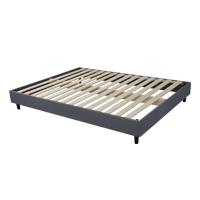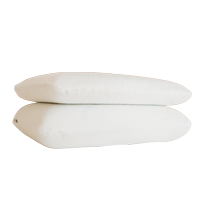Can't Sleep
How much sleep do successful people get?
The sleep routines of highly successful people
Many famous people — from the prophet Muhammad, to New York rapper Nas — abide by the saying that ‘sleep is the cousin of death’. To those that walk the corridors of power, sleep is misspent time. Misspent time provides fewer opportunities for success and prosperity. For this reason, you may have heard various claims that famous people have strange, usually minimalist sleep habits.
For the most part, the sleep routines of successful people are actually pretty normal and easy to replicate. However, there are some more extreme methods that high performing people undertake to get the most out of their time and body. We’ll take a look at some of these interesting sleep cycles and how can benefit — or impede — the human body.
At Sleep Republic, we believe a good night’s sleep starts with a high-quality mattress. We’ve combined high definition pocket springs with comfort layers like gel-infused memory foam, to create the ultimate foundation of comfort.
Monophasic sleep cycles
Monophasic sleep cycles are the most common sleep cycles for people all over the world — where one sleeps for a single, extended period during the evening. However, celebrities and other successful people often report minimising or maximising these periods to better fit with their busy waking schedules.
Who uses this sleep cycle? In short, many people get by with just the one unbroken sleep cycle. Here are some interesting examples:
- The late NBA superstar Kobe Bryant had such a busy schedule (even in retirement) that he could only afford 4 or 5 hours of sleep per night.
- Conversely, LeBron James is able to get 9 or 10 hours of sleep per night, followed by several 1-hour rests during the day.
- Even Donald Trump has boasted about surviving off 3 to 4 hours of nightly sleep.
Polyphasic sleep cycles
Polyphasic sleep cycles are an intense method of maximising productivity through waking hours. These sleep cycles split sleeping time into small but regular increments. The scientific understanding is that when someone undertakes a polyphasic cycle, their mind and body adjust to incremental sleep, allowing sleepers to feel rested off much less total sleep time.
The Uberman Sleep Cycle is the most prominent example of polyphasic sleep cycles undertaken by celebrities. This sleep cycle sees practitioners sleep 30 minutes every 4 to 6 hours. As such, Uberman sleepers may only get 2 hours of sleep per day, leading to an increase in productivity.
Who uses this sleep cycle? Leonardo Da Vinci was a big proponent of the Uberman Sleep Cycle, as was fellow inventors Nicola Tesla and Thomas Edison. However, it is not limited to thinkers. US swimmers Ryan Lochte and Michael Phelps employed similar sleep cycles leading up to championships.

Biphasic sleep cycles
Biphasic sleep cycles split the requisite period of sleep into two separate events, usually a short daytime nap followed by a longer nighttime sleep.
This method is also familiar to those living in warmer climates. Just look to the Spanish siesta or Croatian pižolot. Biphasic sleep can reportedly have many benefits for healthy adults, including:
- Avoidance of the hotter parts of the day for manual labour
- Reduced risk of cardiovascular disease through stress
- Improved post-lunch digestion and heartburn reduction
Who uses this sleep cycle? Winston Churchill liked to sleep for 5 hours every night with a 2-hour nap after lunch. Charlemagne, emperor of France, also like to put his feet up after his midday meal.
With sleep and success, there’s no magic number
Everyone sleeps differently. For example, some billionaire entrepreneur philanthropists like Richard Branson and Bill Gates begin and end the day with a heavy and light workout, respectively. They require over 7 hours of uninterrupted shut-eye before beginning the day anew. Famous writers like Truman Capote and Edith Wharton remained in bed to begin their daily writing, preferring to remain slightly tethered to the creative dreamspace of the previous evening.
Many people think there is a magic formula for the adequate amount of sleep, but really — it’s up to the individual. How much sleep you need depends on what you require to function. Your biology and lifestyle determine the hours of sleep you will need. It doesn’t really have much of an impact upon success — as long as you are getting enough to perform.
Whether you want to get the standard 8 hours, or you want to hack your body to increase your productivity, sleep is vitally important to your health. Great sleep begins with a good mattress. Order now from Sleep Republic and enjoy fast shipping around Australia, with a 100-night risk-free trial.












